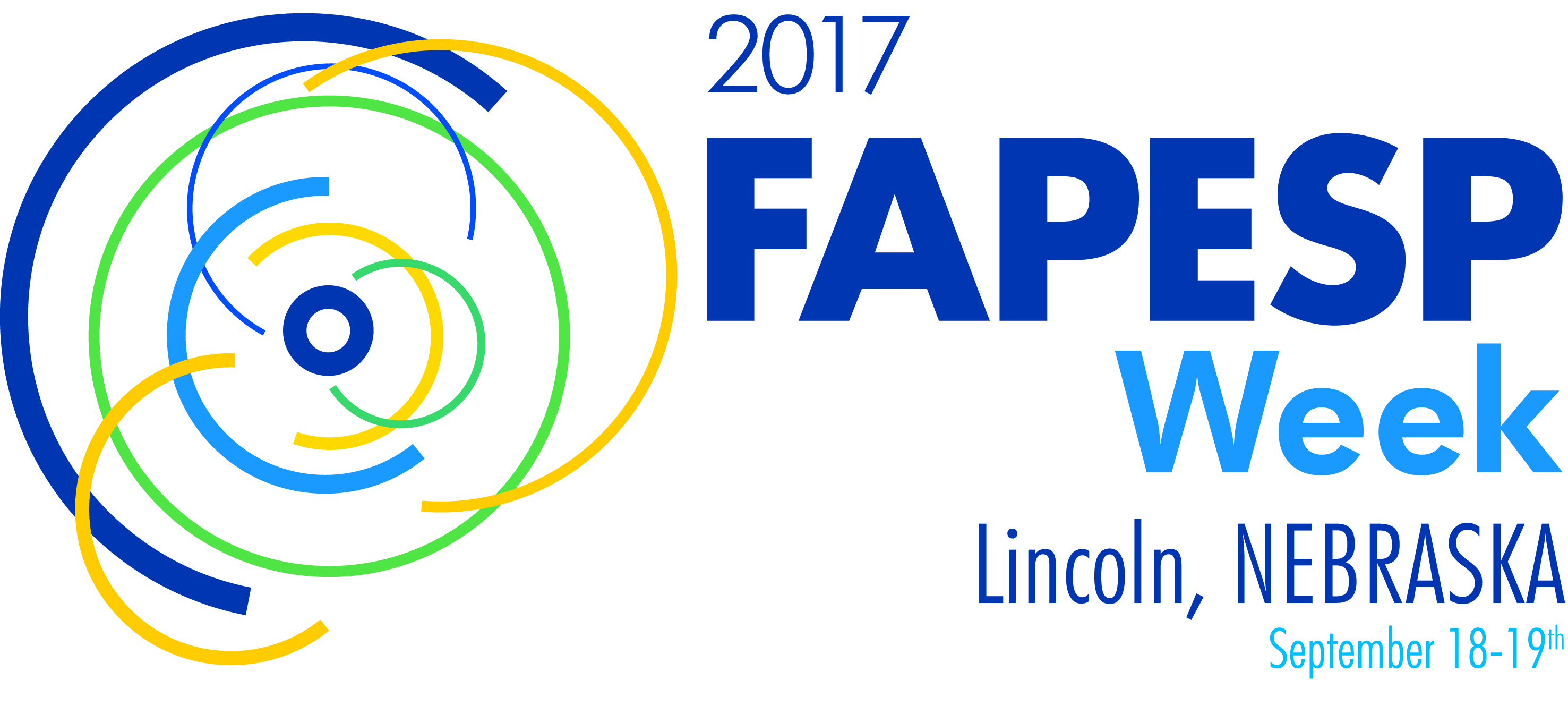In 2017, from September 18 to 22, the São Paulo Research Foundation (FAPESP), the University of Nebraska–Lincoln (UNL) and Texas Tech University will organize FAPESP WEEK NEBRASKA AND TEXAS. The symposium aims at strengthening the links between scientists from Brazil and United States with the objective of promoting research partnerships. Nebraska's part in the event will be held Monday, September 18 and Tuesday, September, 19.
FAPESP is one of the major funding agencies for scientific research in Brazil. Funded by the public taxpayers, its mission is to foster scientific research in all fields of knowledge by awarding scholarships, fellowships and grants to investigators linked with higher education and research institutions in the State of São Paulo, Brazil.
FAPESP is aware that the very best research can only be done by working with the best researchers internationally. Therefore, it has established partnerships with funding agencies, higher education, private companies, and research organizations in other countries known by the quality of their research and has been encouraging scientists funded by its grants to further develop their international collaboration.
As part of these efforts, FAPESP has organized symposiums and exhibitions in several countries, in cities as Washington, Morgantown, Cambridge, Charlotte, Raleigh, Chapel Hill, Berkeley, Davis, Ann Arbour and Columbus (US), Barcelona, Buenos Aires, Montevideo, Toronto, Salamanca, Madrid, Tokyo, London, Beijing and Munich. Now, Lincoln and Lubbock are added to this list.
FAPESP
The State of São Paulo has a population of 44 million and generates 32% of Brazil’s GDP. Under the State Constitution 1% of all state taxes are appropriated to fund FAPESP, which was put in motion in 1962.
The stability of the funding and the autonomy of the foundation allow for an efficient management of the resources that has had a sizable impact: while São Paulo has 22% of the Brazilian population and over 30% of the scientists with a doctorate in the country, the state responds for 44% of the country’s scientific articles published in international journals.
The effectiveness of research carried out in São Paulo is the combined result of several factors that include the quality of the state’s universities and institutes, the extraordinary productivity of its researchers, high rates of participation by private, São Paulo-based companies that function within the state’s R&D outlays, São Paulo’s outstanding infrastructure, and the existence of FAPESP, a well-designed state research-sponsoring agency governed, maintained by its directors with excellence and with autonomy over the past half century.
Within this context, in 2016 FAPESP applied $ PPP 533.9 million in scholarships and grants.
In accordance with the Foundation’s funding objectives, 39% of expenditure was earmarked for advancing knowledge, 8% was dedicated to supporting research infrastructure and 53% was allocated to supporting application-driven research.
FAPESP works in close contact with the scientific community: all proposals are peer reviewed with the help of panels composed of active researchers from the specific area. Many times scientists in São Paulo submit proposals for programs to the foundation which are carefully analyzed and, if deemed strong in academic terms, are shaped by the foundation into research programs that will constitute a set of related research projects in a given area.
Since FAPESP’s mandate is to foster research and scientific and technological development in the state, ideas for programs that couple world class research with contributions that will impact social problems are welcome.
About FAPESP WEEK 2017: The sessions are free and open to the university community and partners. Walk-ins are welcome, but you must register to attend the lunch, as seats are limited. For a detailed agenda of the two days, please visit the FAPESP Week site here. For more information on Nebraska's relationship with FAPESP or how to be involved in this year's event, contact Liana Calegare at lcalegare2@unl.edu.
